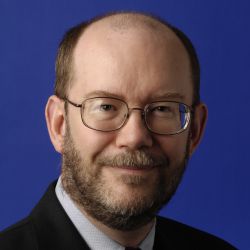
Normal 0 false false false false EN-US X-NONE X-NONE
Normal 0 false false false false EN-US X-NONE X-NONE In these challenging economic times, U.S. universities are under great stress Normal 0 false false false EN-US X-NONE X-NONE —economically, politically, and socially. Cash-strapped states are reducing appropriations for public universities, and those private universities fortunate enough to possess substantial endowments are managing them with a frugal eye on an uncertain economy. To compensate, tuition is rising rapidly, and the chase for already constrained federal research funding is increasingly frenetic.
Unfortunately, increasing numbers of students are leaving (degreed or not) with substantial loan debt and Normal 0 false false false EN-US X-NONE X-NONE —in this economy Normal 0 false false false EN-US X-NONE X-NONE —with rather bleak employment prospects. The rising cost of higher education, coupled with uncertain employment options, is deeply troubling to parents and students, as well as faculty members and university leaders.
What does all this mean? Public and private institutions alike are now caught between their straitened economics and their historical roles. In a rapidly shifting knowledge economy, it has never been more important to educate a new generation of students, advance the frontiers of knowledge, foster economic development, and facilitate debate on important societal issues.
Computing Responsibility
It is tempting for those of us in computing to ignore these issues. After all, our field is booming, with stunning advances in both computing theory and practice. We face a shortfall of qualified graduates, the competition for experienced and qualified practitioners is intense, and there are many interesting and well-remunerated jobs. (For detailed data, see the Computing Research Association [CRA] workforce data analysis.)
Yes, we should celebrate these happy facts, but I believe we must also consider our social obligation to help address today’s university challenges, for we are the beneficiaries of past actions. In that spirit, it is worthwhile to consider another time when American society renegotiated its compact with higher education, triggered by social and economic upheaval.
The Morrill Act of 1862 granted each state 30,000 acres of public land. Proceeds from the land sales were to be invested in an endowment to support colleges of agriculture and mechanical arts in each of the states. For the first time, practical training became a major focus of U.S. higher education.
These “land grant” institutions brought modern engineering and agricultural methods to a still largely rural and agrarian, though rapidly industrializing society. Nor were they simply outposts of erudition, with agricultural experiment stations and extension services; they quite literally took new ideas and technology to the farmer’s field.
Planting Seeds
What are the “agricultural and mechanical” arts of the 21st century knowledge economy? What transformative force is driving economic and social change? The answer to both questions seems rather obvious Normal 0 false false false EN-US X-NONE X-NONE —it is computing, both its enabling technology and its myriad applications.
Our universities are struggling to respond and adapt to a rapidly shifting environment, with new social demands and heightened economic pressures. How do we help them respond more nimbly to societal needs for education and skills, economic development and job creation? How can we best use computing to expand access to higher education? How can we reduce costs and provide just-in-time lifelong education when the inevitable technical dislocation and job losses occur? How can we accelerate discovery and innovation?
I do not know the answers, or even all the questions. However, like agriculture and engineering before us, computing has a social responsibility to be an active and enthusiastic partner in helping chart the nature of higher education and its evolving compact with society. It is, I believe, a responsibility we have not fully shouldered to this point.
We have the skills, insights, and expertise. We can plant the seeds of the future.



Join the Discussion (0)
Become a Member or Sign In to Post a Comment